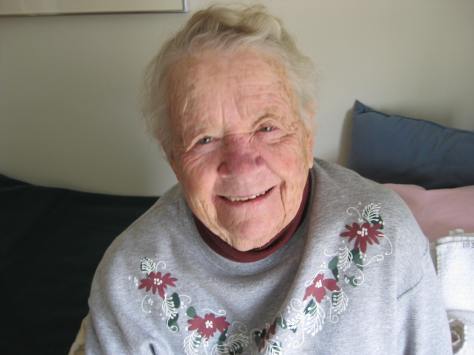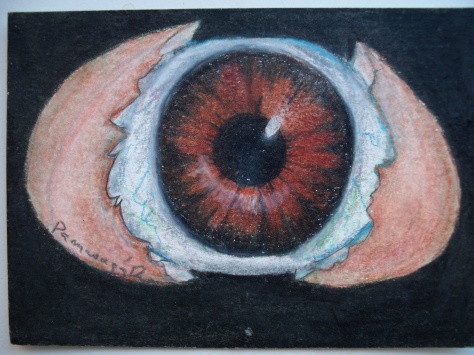Dear Readers, here I am again, some scant four months after getting out of the Vermont state hospital unit in Rutland, Vermont, after two years of nearly nonstop institutionalizations, and i am dedicated to the proposition that i will never again see the inside of another mental health facility in this state, or any other state for that matter. Nor will i allow myself to be lied to again by a practitioner of mental health care, a subject i consider almost completely bogus, both the diagnosis of so-called mental disorders and their almost universally dangerous “treatments.”
In this spirit of rejecting the mental health system, rejecting even the non-system, except insofar as I need assistance in getting out of it, and rejecting *any* and all mental illness diagnosis, i decided to take a course in creativity for five days in Newfane, Vermont, just to try my hand at something outside the usual realm of “recovery-” and or madness-oriented activities.
While this ended up being, frankly, a bust — for reasons i will explain, i can report that i really liked the people i met there, some of whom came from as far away as the UK. As for the course itself, I feel that a requirement of valor means that i leave this at “the less said, the better.” I admit, however, that the teacher, a certain Robert Fritz of self-proclaimed international renown, seems to have been taking out his private pique on me ever since the course ended, for leaving the class early, on a few days, and for not praising him lavishly, or even, god knows, “enough.”
So be it, so be it. If he is so small as to exact such petty revenges, i myself need not stoop to his level.
Alas, the course ended up depleting me deeply and the sole worthwhile lesson it left me with concerned “structural tension.” This, Fritz repeated literally ad infinitum, or at least ad nauseam, all day long for five days, 8 hours a day. Sadly, the one time we did worthwhile hands-on practice, when he *first* outlined this notion and gave us a narrative structure — take point A and reverse it to point B (with a character, crisis and certain developing plot points) around which to easily design a monologue — Fritz then gave us an hour to write a piece in the voice of a single person, and was rewarded when every single person in the class wrote what i thought was a professionally competent piece, this was never to be repeated.
How much more he could have taught us and built on that, had he used the example of what we had learned and done and our confidence to “grow on and go on…” but instead he opted only for more of the same old same old, which was just going over the same ground again and again, with analyzing music video after music video but doing it FOR us, not even having us participate in any meaningful way. Readers, it truly appeared that class participation in any real sense was simply too threatening for this teacher, who was not one of those who felt he could learn anything from his students, no matter their age and life experiences…
No more recriminations on my part. I could not have known this would happen, especially since we were provided no clues, no syllabus, no handout that gave any hint as to Robert’s plans…I went in every day, every single day, and to every session with (dimming but) renewed hope that things would change, right to the last session of the last day…To my dismay and disappointment and growing exhaustion, it never did.
At least i enjoyed the monologue- writing exercise. The following was mine, which is fiction, though it was based on someone i know pretty well (and he knows who he is! )
_____________________________________
I, Winton Wooster the third, had sex for 30 years with one man and one man only, Arturo, whom I’d met in Culinary Arts school and absolutely despised. It took me another three years and five other men, one woman, and an Electrolux, before I came to realize that it was Arturo to whom I was attracted and loved with all my heart and soul and body. “Over The Rainbow” sung by Izzy Kamakawiwo’ole was our song.
Some people think gay men can’t be monogamous. That is so not true, so not true. I might have been promiscuous before Arturo, but A.A, that is After Arturo, I never looked away, that is until…well, how do I explain this?
It all started with cars. And collections. Collections of cars. And collections of everything else under the sun. I had the car collection, and I had the other collections. I had Kewpie dolls and Christ statuettes and I had spoons and books of spoonerisms, and I had jackknives and jack-in-the-boxes, I had bowls and bowling ball collections. If there was something to be collected, I collected it and more. I collected art and books, and books of art and china and vintage Chinese clothing and if you think there was no space left in my three-story house, that is saying nothing. I rented space in several other houses, my clients’ houses, which I cleaned each week, and those were soon filled with my collections as well. As for the cars? I had seventeen cars and that was only after culling them down from a high of thirty-seven.
As for Arturo? He had one. One car, and no collections. Only an affection for zinnias, which he called the gay flower and he grew tons of them, for me. His car was named Ada, and she was a 1987 Toyota Tercel. I always said I didn’t think they still made the Tercel that year, but he showed me the papers and proved that they had. Ada was pale yellow, a custom color, and still had the original fabric on her seats and the same original everything, just a tad creaky and fading. I joked with Arturo that we too were creaky and fading. Now, to tell a gay man of 55 that he is beginning to fade and creak is dicey at best, but we were not just old lovers, we were practically brothers, so the degree of his taking offense surprised me. But then he retorted that I shouldn’t talk, since I needed Viagra more often than not and that was only when I managed to get interested enough to take it.
Oooh, that got me where it hurt. But he wasn’t wrong. The thing is, I had once had enormous sex drive along with everything else but along the way, things seem to have just dissipated. I don’t know why exactly. But it was that remark that crystallized an amorphous dissatisfaction into the huge lump of cruel coal it was: Arturo was the source of my problems and my discontent. If I hadn’t been supporting him, if he didn’t live in my house, I would have more space for my things, and furthermore I would find someone I could, frankly, feel something for and well, get it up for. Period.
The end of our partnership came one night during a quarrel about my car collection, which was occupying several other garages as well as parking spaces in town. Several times a year during snow storms we had to play a desperate game of move the cars – in order to stay ahead of the tow trucks and the tickets to get them out of wherever they might be impounded. Arturo was sick of this, and frankly so was I and I wanted, I proposed, and I had actually had the plans secretly approved by the town zoning board, to build a giant garage in the back yard, a “garage-mahal” that would house my entire car collection on site. The problem was that in order to finance it, I wanted Arturo to pay rent, to help out, that is, with my second mortgage.
Arturo was hurt and he said so in no uncertain terms. He had lived with me and paid me in so many other ways, he told me, how could I do this to him? He cooked, he cleaned and he shopped and he did everything in the house to have made it a home for us and now I expected him to pay rent like a mere tenant? Firmly and obdurately I stood my ground and said, yes.
With tears in his eyes, for which I admit I felt a small pang, but not as big a pang as I ought to have, he turned around, climbed the stairs to our bedroom and packed a suitcase. Then I heard him tread the stairs downward, open the front door, and close it with a thud.
I was such a cad I did not even ask him where he was going or see him off. I felt a relief just to be rid of him. I can’t even say why. It was only the next morning that I discovered, in the small car shed I was planning within the week to tear down and replace with my garage-mahal, Arturo’s pale yellow Toyota Tercel, which he had left behind, for reasons I did not know and could not divine. After he didn’t pick it up for a month, I decided that he likely could not afford the payments or the gas, now that I was not paying for everything. Nevertheless, I could not bring myself to get rid of it, so I paid the insurance and made sure the registration was up to date and kept it on the first floor of the new enormous garage that was soon built on the back of my property.
I did not hear from Arturo at all after that. I learned from friends that he was renting a small first floor apartment on the outskirts of town, in exchange for taking care of the owners’ property. He was rumored to have neither phone nor email. I did not try to contact him but got absorbed instead in my own busy-ness.
In the garage-mahal there was room for all of my vehicles, all the ones in driving condition, including the Bentley for which I had paid only $22,000.00 but kept in mint condition. I had some cars on lifts and others were withdrawn down into specially constructed rooms underground. Only my special fire engine red Mustang and Arturo’s Tercel were in the front bay, readily available for driving.
I spent many of my leisure hours polishing and cleaning the cars, as the house had gone to seed, ever since Arturo was not there to pick up after me or sort the collected items. Also, it was – to be honest — lonely. I was able to have sex after Viagra, yes, but then only to have the Electrolux as my partner — what was the point? I gave up sex altogether. But that made me feel even worse. I tried the gay dances and party scene, and once even an “orgy” that a friend urged me to go to. But all of that just made the loneliness worse.
One night in the summer, sitting in a deck chair, under the bright LED lighting in the garage-mahal, I thought I heard someone’s radio playing a yard away. I got up to listen and heard our favorite song, “Over the Rainbow” performed by Izzy. I stole down the street, and listened to the radio on a porch nearby, and found myself standing in a clump of tall bright-petalled flowers as if by coincidence. No coincidence, I thought, there are no coincidences. I am a total cad, but I can’t let this be. I have left the love of my life and I need him back.
I ran back to the garage-mahal and jumped into the red Mustang, but the starter just made a coughing sound, as if it had just then given up the ghost. “Damn!” I yelled, then I realized that Arturo’s Tercel was still insured and ought to be drivable. Ought to be. Hell, yes, why not?
It was. As if it knew just where it was going the Tercel seemed to drive me all by itself to a small pink stucco house on the edge of town, a house surrounded by trees and with planters filled to the brim with zinnias. To this day I don’t know how it was that Arturo happened to be there, or why he did not seem surprised or even taken aback that I’d come. But without questioning anything, he just smiled warmly, opened the door and opened his arms.

 SPIRO, Marian Wagner, 89, of Madison, CT and Amherst, MA died on June 18, 2017 at the Hospice of the Fisher Home after a lengthy illness. Marian was born in Fall River, MA on February 16, 1928 to Oliver and Carolyn Wagner. She was raised in Fall River during the Depression and graduated from BMC Durfee High School. She then earned a two-year degree from Vermont Junior College that enabled her to work as a lab technician. It was at a lab at Harvard Medical School that she met her husband Howard Spiro. They were married in 1951, made a home in New Haven, CT and quickly had four children: Pammy, Lynnie, Martha, and Philip. In the meantime, she returned to school, received her undergraduate degree and in 1970 began a twenty-year career as a renowned teacher of science and math at The Foote School in New Haven. She introduced computers to her students long before they ended up in their back pockets and once built a solar-heated oven to bake the Thanksgiving turkey. She helped to revive the school newspaper, which was later renamed the “SPI” in her honor. Her dogs were frequent guests in her classroom, and when she wasn’t helping to train her friends’ dogs or hosting canine pool parties in her backyard, Marian was taking her own retrievers to local hospitals or mental health facilities to hang out with patients. Throughout her life, she was known for expert woodworking skills, her intuitive ability at navigating a sailboat, her competitiveness on the tennis court or in a game of bridge or scrabble, her love of golden retrievers, her lasting friendships, and her deep devotion to her family. She never let the social conventions of her day block her dreams: she embarked on a lifetime avocation of woodworking despite being told it was not for girls, she became a teacher of science before most scientists would accept women as their peers, and she even made the phone call to Howard for a date that led to their eventual marriage. She will be sorely missed by her four children: Pamela Spiro Wagner, Carolyn Spiro Silvestri, Philip Spiro and Martha Spiro; her six grandchildren: Allison Spiro-Winn, Jeremy Spiro-Winn, Hannah Spiro, Claire Spiro, Oliver Spiro and Adriane Spiro; and her many friends and students. She follows the passing of her parents Oliver and Carolyn, her husband Howard of 61 years, her sister Barbara, and her brother Oliver. A memorial service will be scheduled at a later time. In lieu of flowers donations may be made to the Marian W. Spiro Fund for Science Enrichment at The Foote School in New Haven, CT or the Hospice of the Fisher Home in Amherst, MA.
SPIRO, Marian Wagner, 89, of Madison, CT and Amherst, MA died on June 18, 2017 at the Hospice of the Fisher Home after a lengthy illness. Marian was born in Fall River, MA on February 16, 1928 to Oliver and Carolyn Wagner. She was raised in Fall River during the Depression and graduated from BMC Durfee High School. She then earned a two-year degree from Vermont Junior College that enabled her to work as a lab technician. It was at a lab at Harvard Medical School that she met her husband Howard Spiro. They were married in 1951, made a home in New Haven, CT and quickly had four children: Pammy, Lynnie, Martha, and Philip. In the meantime, she returned to school, received her undergraduate degree and in 1970 began a twenty-year career as a renowned teacher of science and math at The Foote School in New Haven. She introduced computers to her students long before they ended up in their back pockets and once built a solar-heated oven to bake the Thanksgiving turkey. She helped to revive the school newspaper, which was later renamed the “SPI” in her honor. Her dogs were frequent guests in her classroom, and when she wasn’t helping to train her friends’ dogs or hosting canine pool parties in her backyard, Marian was taking her own retrievers to local hospitals or mental health facilities to hang out with patients. Throughout her life, she was known for expert woodworking skills, her intuitive ability at navigating a sailboat, her competitiveness on the tennis court or in a game of bridge or scrabble, her love of golden retrievers, her lasting friendships, and her deep devotion to her family. She never let the social conventions of her day block her dreams: she embarked on a lifetime avocation of woodworking despite being told it was not for girls, she became a teacher of science before most scientists would accept women as their peers, and she even made the phone call to Howard for a date that led to their eventual marriage. She will be sorely missed by her four children: Pamela Spiro Wagner, Carolyn Spiro Silvestri, Philip Spiro and Martha Spiro; her six grandchildren: Allison Spiro-Winn, Jeremy Spiro-Winn, Hannah Spiro, Claire Spiro, Oliver Spiro and Adriane Spiro; and her many friends and students. She follows the passing of her parents Oliver and Carolyn, her husband Howard of 61 years, her sister Barbara, and her brother Oliver. A memorial service will be scheduled at a later time. In lieu of flowers donations may be made to the Marian W. Spiro Fund for Science Enrichment at The Foote School in New Haven, CT or the Hospice of the Fisher Home in Amherst, MA.

 J
J











